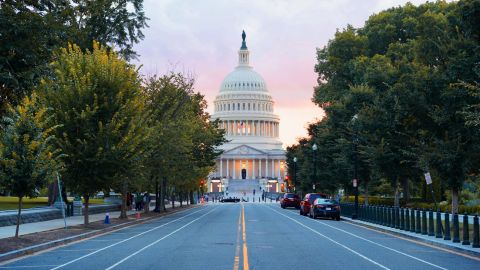Acting to protect research integrity
The U.S. House of Representatives Science and Technology Committee approved the Scientific Research Integrity Act in October with an overwhelmingly bipartisan vote.
If you get most of your information from television news or newspapers, you might not have heard about this. You might think Congress did little in the final quarter of 2019 beyond debating the impeachment of President Donald Trump and passing federal spending bills. My job is monitoring Congress, and sometimes even those of us who do this for a living have trouble finding reporting — outside our science policy-focused news sources — about any activity unrelated to impeachment on Capitol Hill.
That said, here is an example of what Congress is doing. Introduced by Rep. Paul Tonko, D-N.Y., the Scientific Research Integrity Act, or H.R. 1709, aims to codify protections for federally funded science and federally funded scientific researchers and to put the brakes on policymakers’ and administration officials’ efforts to politicize science funding.
Specifically, the bill allows federal agencies and government-employed scientists to review data for technical accuracy and provides a mechanism for scientists to review and revise official statements about their findings. Further, it allows federal scientists to present findings at scientific conferences, sit on councils and participate in peer review (subject to conflict-of-interest review). Under the proposal, federal scientists would be authorized to talk to the news media about their science without prior approval from the administration or the agency they work for.
The bill does more still, and I invite you to review it here.
When Tonko introduced this legislation, he said of government scientists, “More and more, their research has become the subject of one political agenda or another. Not since the Scientific Revolution has there been a more important moment to stand for the basic ideas that inquiry must be free and facts and evidence matter.”
The American Society for Biochemistry and Molecular Biology Public Affairs Advisory Committee applauds Tonko for this important legislation, which would create barriers to political pressure on federal scientists and the politicization of scientific findings. We are encouraged to see that the legislation has bipartisan support. The majority of ASBMB members are not federal scientists, but some are — and we think they should be trusted to serve as reliable and unbiased experts in the scientific enterprise.
This legislation is not likely to become federal law. Some of our analytical tools, supplied by the media company Politico, estimate a less than 5% chance of enactment. In the past 10 Congresses, or 20 years, an average of only 3.1% of bills introduced have been enacted into law. While passage of the bill may not be likely, it is not uncommon for popular, noncontroversial proposals in legislation to be included in other related bills that are on track for passage.
We will continue to support passage of this bill, and we will encourage our partners on Capitol Hill to view this legislation as an important way to support the scientific enterprise.
Enjoy reading ASBMB Today?
Become a member to receive the print edition four times a year and the digital edition monthly.
Learn moreGet the latest from ASBMB Today
Enter your email address, and we’ll send you a weekly email with recent articles, interviews and more.
Latest in Policy
Policy highlights or most popular articles

Councilors advocate for science on Capitol Hill
ASBMB Councilors meet with their elected officials to advocate for basic scientific research funding and training the next generation of scientists.

Hope for a cure hangs on research
Amid drastic proposed cuts to biomedical research, rare disease families like Hailey Adkisson’s fight for survival and hope. Without funding, science can’t “catch up” to help the patients who need it most.

Supporting science through advocacy and community building
ASBMB calls on scientists to take action as funding cuts and policy shifts threaten the U.S. research enterprise, emphasizing the power of community advocacy and persistence in protecting the future of science.

Seven steps to advocating in your home state
Find out how to schedule, prepare for and conduct a productive district office meeting to communicate the importance of fundamental scientific research funding to your representatives.

ASBMB members call for funding and agency support amidst uncertainty
In 60 meetings on Capitol Hill, scientists urge legislators to reaffirm support for scientific innovation

Embrace your neurodivergence and flourish in college
This guide offers practical advice on setting yourself up for success — learn how to leverage campus resources, work with professors and embrace your strengths.

